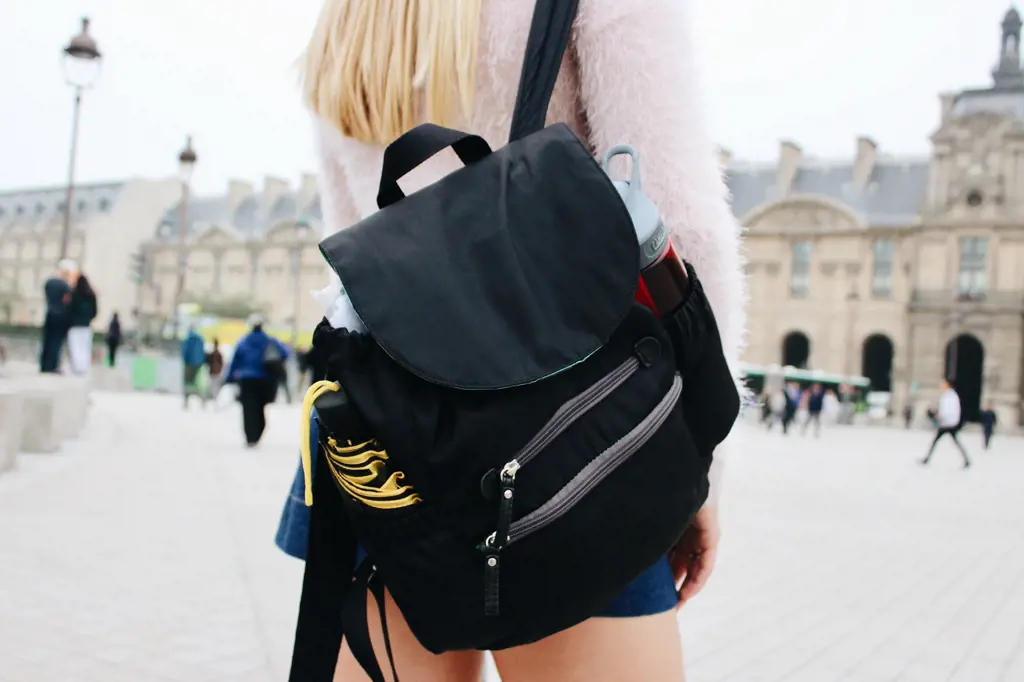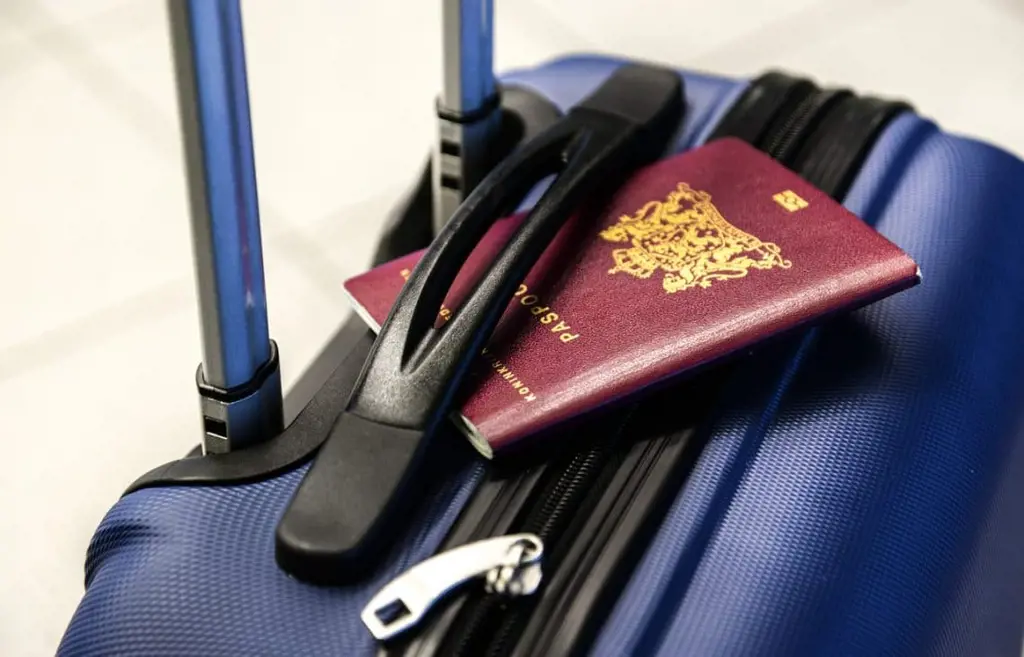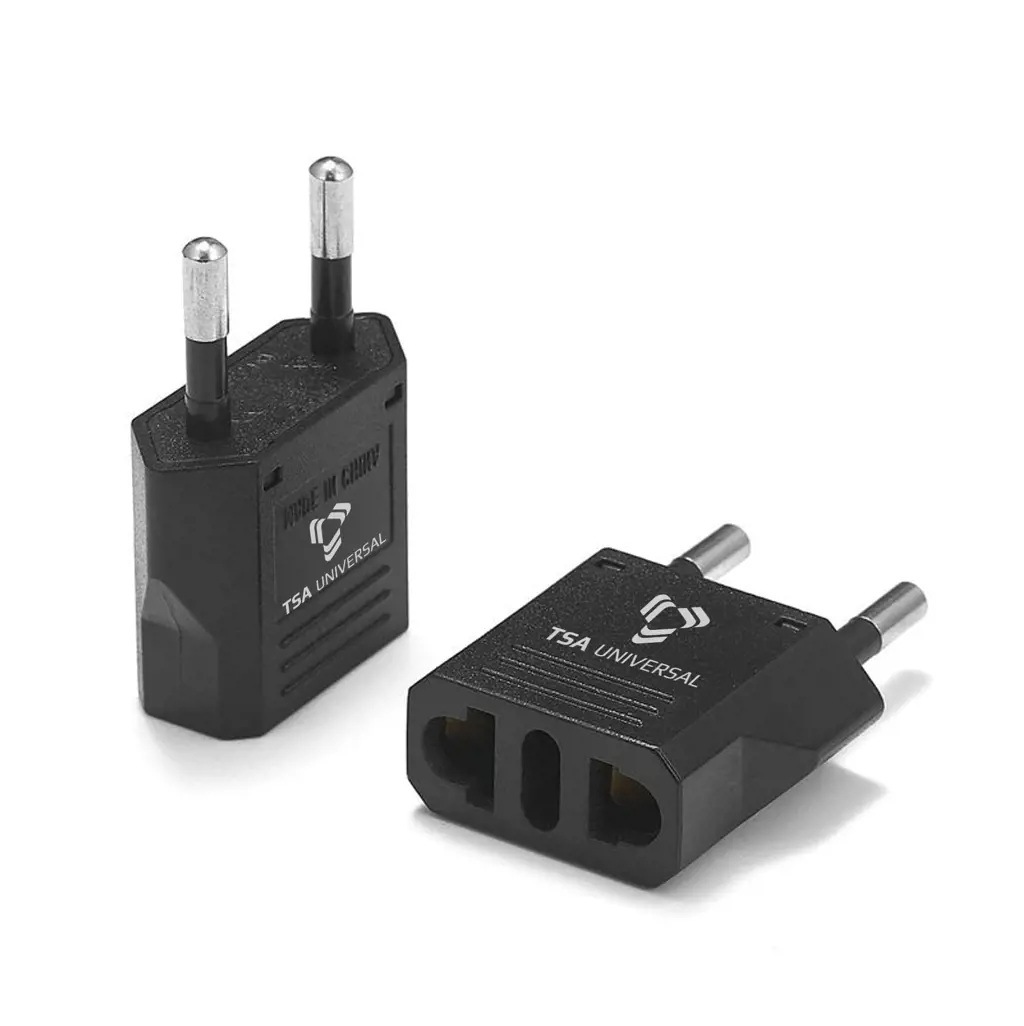
Studying abroad in Spain is an exciting opportunity to immerse yourself in a vibrant culture, learn a new language, and explore historical sites. However, preparing for this adventure can be overwhelming, especially when it comes to packing. To make sure you have everything you need for your time abroad, we have compiled a list of essential items that will keep you comfortable, prepared, and ready to make the most out of your experience in Spain. From practical necessities to cultural must-haves, this guide will help you pack like a pro and ensure a smooth transition into your new life in Spain.
What You'll Learn
- What are the essential clothing items to pack when studying abroad in Spain?
- What important documents and photocopies should be packed for studying abroad in Spain?
- Are there any specific items or medications that should be packed for health and safety purposes in Spain?
- Are there any cultural or etiquette items that should be packed when studying abroad in Spain?
- What electronics and adapters should be packed for studying abroad in Spain?

What are the essential clothing items to pack when studying abroad in Spain?

When studying abroad in Spain, it's important to consider the unique climate and culture of the country when packing your clothing. Here are some essential items to include in your suitcase to ensure you're prepared for your time abroad:
- Lightweight and Breathable Tops: Spain experiences hot summers, so pack a variety of lightweight and breathable tops such as t-shirts, tank tops, and blouses. Opt for materials like cotton or linen that allow for airflow and help keep you cool in the heat.
- Comfortable Bottoms: Pack a mix of shorts, skirts, and lightweight pants for your time in Spain. It's important to respect the local culture and dress respectfully when visiting religious sites or more conservative areas. Aim for knee-length or longer bottoms to ensure you're appropriately dressed in such situations.
- Layering Pieces: While summers in Spain can be scorching hot, evenings can sometimes get cooler, especially in coastal areas. Pack a light jacket or cardigan that you can easily layer over your outfits when needed. This will ensure you're prepared for any changes in weather throughout the day.
- Swimwear: Spain is known for its stunning beaches and beautiful coastline. Don't forget to pack your favorite swimsuit or swim trunks so you can take full advantage of this natural beauty. Whether you're planning to hit the beach or relax by the pool, having swimwear on hand is a must.
- Comfortable Shoes: Spain is a country that's best explored on foot, so having comfortable shoes is essential. Opt for a sturdy pair of walking shoes or sneakers that will provide support for long days of sightseeing. It's also a good idea to pack a pair of sandals or flip-flops for those beach days or casual outings.
- Sun Protection: The Spanish sun can be intense, so be sure to pack sunglasses, a hat, and sunscreen. These items will help protect you from harmful UV rays while enjoying outdoor activities. Additionally, consider packing a lightweight scarf or sarong to use as a cover-up or to protect yourself from the sun if needed.
- Versatile Accessories: To make the most of your wardrobe while studying abroad, pack accessories that can easily change up your outfits. This includes items like scarves, belts, and statement jewelry that can transform a basic outfit into something more stylish and put-together.
Remember to pack clothing items that are versatile and easily mix and match to create different outfits. This will help you pack lighter and have more options available to you throughout your time in Spain. It's also a good idea to research the specific region in Spain you'll be studying in, as there may be some variations in climate and dress code. By being prepared and packing the right clothing items, you'll be ready to fully enjoy your study abroad experience in Spain.
The Ultimate Guide: What to Pack for Your Trip Around the World
You may want to see also

What important documents and photocopies should be packed for studying abroad in Spain?

Studying abroad can be an exciting and enriching experience, and Spain is a popular destination for many international students. However, before embarking on your journey, it is important to make sure you have all the necessary documents and photocopies with you. These documents will not only help you with the enrollment process but also serve as essential identification and proof of eligibility. Here are some important documents and photocopies that you should pack when studying abroad in Spain:
- Passport: Your passport is the most important document you will need to travel and study in Spain. Make sure your passport is valid for at least six months beyond your anticipated stay.
- Student visa: If you are planning to study in Spain for more than three months, you will need to apply for a student visa. This visa will allow you to enter and stay in Spain legally for the duration of your studies. Make sure to bring a photocopy of your visa along with the original.
- Acceptance letter: Your acceptance letter from the university or institution where you will be studying in Spain is crucial. It serves as proof of your enrollment and should be presented during the enrollment process.
- Proof of financial resources: To obtain a student visa, you may need to provide proof of sufficient funds to cover your living expenses while studying in Spain. This can be in the form of bank statements or financial sponsorship letters. Make sure to carry photocopies of these documents.
- Medical records: It is advisable to carry a copy of your medical records, including any prescriptions or medical conditions you may have. This will be helpful in case of emergencies or when seeking medical assistance in Spain.
- Travel insurance: While not mandatory, it is highly recommended to have travel insurance that covers emergency medical expenses, trip cancellation, and baggage loss. Make sure to have a photocopy of your insurance policy.
- International driving license: If you plan to drive in Spain, it is important to have an international driving license. This license allows you to drive legally in Spain for a limited period. Carry a photocopy of your international driving license.
- Student card or ID: A student card or ID issued by your university or institution can provide you with discounts on transportation, museums, and other activities. Make sure to have a photocopy of your student card or ID.
- Medical insurance card: If you have private medical insurance, carry a photocopy of your insurance card. This will be helpful in case you need to seek medical attention or use healthcare facilities in Spain.
- Emergency contacts: It is important to have a list of emergency contacts, both in your home country and Spain. This should include contact information for your family, friends, and the nearest embassy or consulate.
Remember, it is essential to have both original documents and photocopies. Keep the originals in a secure place, such as a locked folder or safe, and carry the photocopies with you at all times. It is also a good idea to scan all your important documents and store them electronically, either on your phone or in cloud storage, for easy access in case of loss or theft.
By ensuring you have all the necessary documents and photocopies with you, you can have a smooth and hassle-free experience while studying abroad in Spain.
Essential Items to Pack for an Island Cruise
You may want to see also

Are there any specific items or medications that should be packed for health and safety purposes in Spain?

When traveling to Spain, it is important to pack certain items and medications to ensure your health and safety throughout your trip. This article will provide you with a list of essential items to bring with you, as well as specific medications that you should consider packing.
- First aid kit: It is always a good idea to have a basic first aid kit with you when traveling to any destination. In Spain, you can expect to find pharmacies easily accessible in most cities and towns, but having a few items on hand can be helpful. Your first aid kit should include bandages, sterile gauze pads, adhesive tape, antiseptic wipes, pain relievers, and any personal prescription medications that you may need.
- Sun protection: Spain is known for its sunny climate, so it is essential to protect yourself from the harmful effects of the sun. Pack sunscreen with a high SPF, sunglasses, a hat, and lightweight, long-sleeved clothing to cover up during peak sun hours. Sunburns can not only ruin your trip but can also have long-term effects on your skin.
- Insect repellent: Depending on the time of year and your specific destination within Spain, you may encounter mosquitoes or other insects. To avoid itchy bug bites and the potential transmission of diseases such as Zika or West Nile, be sure to pack insect repellent. Look for a repellent that contains DEET, as it is effective against a wide range of insects.
- Prescription medications: If you are taking any prescription medications, be sure to pack enough to last you for the duration of your trip, as well as a bit extra in case of any unforeseen delays. It is also a good idea to carry a copy of your prescription or a letter from your healthcare provider stating the need for the medication, especially if it contains controlled substances.
- Over-the-counter medications: It is also helpful to have a few over-the-counter medications on hand for common ailments such as headaches, allergies, or upset stomachs. Examples include pain relievers, antihistamines, and antacids. While these items are readily available in Spain, it can be convenient to have them with you, especially if you are staying in a remote area or if it is outside of pharmacy opening hours.
- Travel insurance: While not an item per se, travel insurance is crucial for your health and safety while traveling abroad. It can provide coverage for any unexpected medical expenses, emergency evacuation, or trip cancellations. Be sure to review the coverage limits and policy details before purchasing to ensure that it meets your specific needs.
It is important to note that the above recommendations are general in nature and may vary depending on your personal health history, destination within Spain, and the specific activities you plan to engage in. It is always a good idea to consult with your healthcare provider before traveling to ensure that you have all the necessary medications and vaccines.
In conclusion, when traveling to Spain, it is essential to pack a first aid kit, sun protection, insect repellent, prescription medications, over-the-counter medications, and obtain travel insurance. By being prepared and taking proper precautions, you can ensure a safe and enjoyable trip to this beautiful country.
Essential Items to Pack for a Camping Trip in Moab, Utah
You may want to see also

Are there any cultural or etiquette items that should be packed when studying abroad in Spain?

When studying abroad, it is essential to be mindful of cultural differences and etiquettes to ensure a smooth and respectful experience. If you are planning to study in Spain, there are a few cultural and etiquette items that you should consider packing. These items will not only help you adapt to the local customs but also show your respect for Spanish culture.
Dress Code:
In Spain, people tend to dress more formally than in some other countries. It is important to pack appropriate clothing that reflects the local customs. Avoid wearing overly casual attire, such as flip flops or gym clothes, when going out in public. Instead, opt for more polished outfits, such as dresses or shirts paired with trousers or skirts. It is also a good idea to pack some more formal clothes, such as a suit or a cocktail dress, for special occasions or events.
Modesty:
Spain is a predominantly Catholic country, and modesty is valued in their society. When packing your clothes, choose items that cover your shoulders and knees, especially when visiting churches or religious sites. This is particularly important during the summer months when the weather is hot, and people tend to wear more revealing clothing.
Punctuality:
Spaniards are generally not as strict about punctuality as some other cultures. However, it is still considered respectful to arrive on time for appointments, classes, or any scheduled events. Pack a watch or set reminders on your phone to ensure you are punctual and demonstrate your respect for others' time.
Greetings and Farewells:
In Spain, it is customary to greet people with a kiss on both cheeks, even if you are meeting them for the first time. This is a common way of showing warmth and friendliness. When saying goodbye, it is also common to give a kiss on each cheek. Be prepared for this form of greeting and farewell and remember that it is a sign of welcome and acceptance.
Gift Giving:
In Spanish culture, it is customary to bring a small gift when invited to someone's home for a meal or a gathering. This can be a bottle of wine, chocolates, or flowers. It is a way of showing appreciation for the invitation and the host's hospitality. Pack some small gifts that you can present when you are invited to someone's home, to ensure you are following this custom.
Table Manners:
Spanish cuisine is known for its delicious tapas and communal dining experiences. When eating with others, it is important to be mindful of table manners. Avoid starting to eat before everyone has been served and wait for the host to initiate the meal. It is also considered polite to keep your hands on the table and not on your lap during the meal.
By considering these cultural and etiquette items when packing for your study abroad experience in Spain, you will be better prepared to assimilate into the local culture and show respect for Spanish customs. Remember to be open-minded, observant, and willing to learn from the locals, as this will enhance your overall experience and make you a more cultured and respectful global citizen.
Essential Items to Pack for a Pilgrimage to Medjugorje
You may want to see also

What electronics and adapters should be packed for studying abroad in Spain?

Studying abroad in Spain can be an exciting and enriching experience. Whether you're heading to Madrid, Barcelona, or another Spanish city, it's important to be prepared with the right electronics and adapters to stay connected and make the most of your time overseas. In this article, we will guide you through the essential electronics and adapters you should pack for studying abroad in Spain.
Laptop or tablet
A laptop or tablet is essential for studying abroad. It will allow you to complete assignments, research, and stay connected with your professors and classmates back home. Make sure to pack the necessary accessories such as a charger and any adapters needed for charging your device in Spain.
Smartphone
A smartphone is a must-have for staying connected while studying abroad in Spain. It will enable you to communicate with friends and family back home, navigate new cities with GPS, and access important apps and information. Check if your smartphone is unlocked and compatible with Spanish SIM cards to save on data and call charges.
Power adapters and converters
Spain, like most countries in Europe, uses the Type C and Type F electrical outlets. These outlets differ from the ones commonly used in the United States, so you will need to pack power adapters or converters to charge your devices. Make sure to research the specific type of adapter you will need for your electronics.
Portable charger
Having a portable charger can be a lifesaver when you're on the go and unable to find an outlet to charge your devices. It's especially useful during long trips or excursions when you may not have access to electricity for an extended period.
Universal plug adapter
If you plan to travel to other countries in Europe during your time in Spain, a universal plug adapter is a wise investment. This versatile adapter will allow you to charge your devices in different countries without the need for multiple adapters.
Noise-canceling headphones
Studying abroad often involves spending time in noisy environments such as cafes or libraries. A pair of noise-canceling headphones can help you focus better and block out distractions when studying or completing assignments.
E-reader or Kindle
If you're an avid reader, consider bringing an e-reader or Kindle. These devices can hold thousands of books, making it convenient to carry your favorite titles with you wherever you go.
Camera and memory cards
Spain is known for its beautiful landscapes, ancient architecture, and vibrant culture. Don't forget to capture these moments by bringing a camera with you. Make sure to pack enough memory cards to store all your photos and videos.
Voltage converter
In addition to power adapters, you may need a voltage converter if any of your electronics are not compatible with the higher voltage used in Spain. Check the voltage requirements of your devices before packing to avoid any damage.
Remember to pack your electronics in a secure and padded bag to protect them from damage during your journey. It's also helpful to keep important contact information, such as your university's IT department, in case you need assistance with your devices while abroad.
In conclusion, studying abroad in Spain can be an incredible experience, and having the right electronics and adapters will make your stay more comfortable and enjoyable. Be sure to pack essential items like a laptop or tablet, smartphone, power adapters, portable charger, universal plug adapter, noise-canceling headphones, e-reader, camera, and voltage converter if necessary. With the right electronics in your bag, you'll be ready to immerse yourself in your studies and make memories that will last a lifetime.
Essential Items to Pack for a Hassle-Free Vacation in Your Carry-On Bag
You may want to see also
Frequently asked questions
What documents do I need to bring when studying abroad in Spain?
A:
When studying abroad in Spain, it is crucial to bring your passport, visa (if applicable), and any other identification documents that are required by your home country and the Spanish government. It is also recommended to bring copies of these documents in case of loss or theft. Additionally, you may need to bring any necessary medical or insurance paperwork.
Q:
A:
When packing for your study abroad program in Spain, it is important to consider the climate and cultural norms of the country. Spain has a Mediterranean climate, so lightweight and breathable clothing is recommended. Pack a variety of clothes suitable for both warm and cooler weather, as well as comfortable shoes for walking. Additionally, it is advisable to pack some formal attire for any professional or formal events you may attend.
Q:
A:
When studying abroad in Spain, it is essential to bring the necessary electronics for your academic and personal needs. This typically includes a laptop or tablet for studying and completing assignments, as well as a smartphone for communication. Adapters and converters may also be necessary for charging your devices, as Spain has different electrical outlets than other countries.
Q:
A:
When packing for your study abroad program in Spain, it is recommended to bring essential toiletries such as toothpaste, shampoo, soap, and any other personal care items you prefer. While these items can be purchased in Spain, it may be more convenient to have them on hand when you first arrive. Additionally, consider bringing any specific medications or medical supplies you may need for the duration of your program.
Q:
A:
Bringing food from your home country when studying abroad in Spain is allowed, but it is subject to regulations and restrictions. It is important to check with the Spanish Embassy or Consulate in your home country for specific guidelines regarding the importation of food items. It is also advisable to be mindful of the quantity and type of food you bring to avoid any issues with customs.







